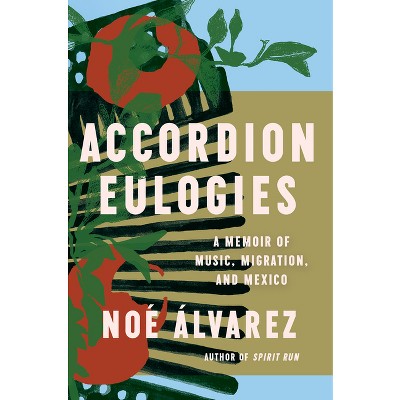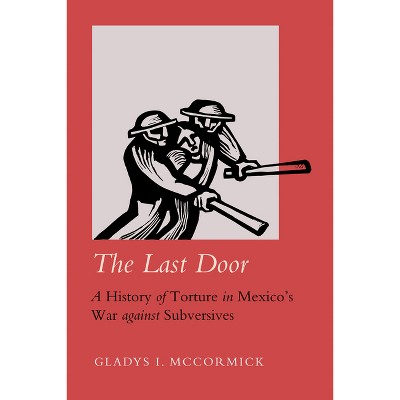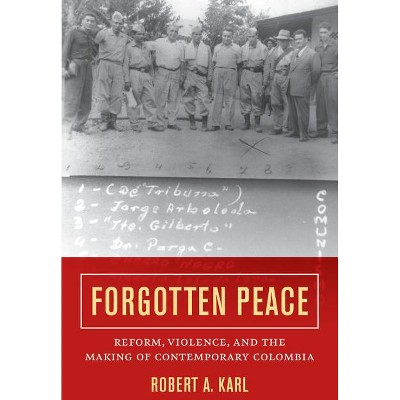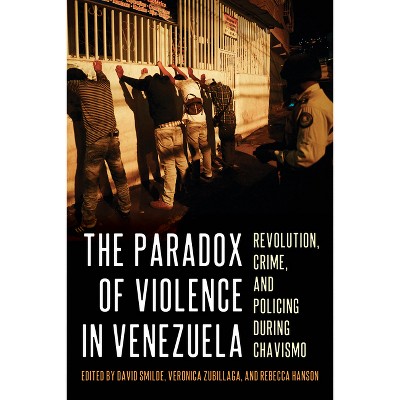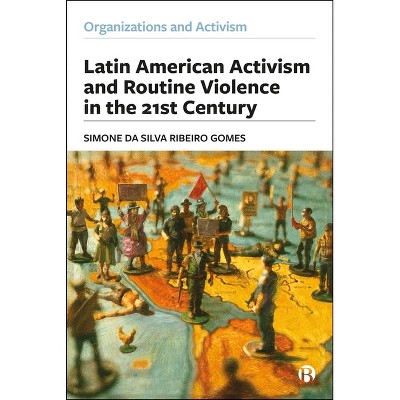Uruguay, 1968 - (Violence in Latin American History) by Vania Markarian (Paperback)

$29.95 when purchased online
Target Online store #3991
About this item
Highlights
- The tumultuous 1960s saw a generation of Latin American youth enter into political life in unprecedented numbers.
- About the Author: Vania Markarian is Associate Professor at Universidad de la República in Montevideo, Uruguay, and is the author of Left in Transformation: Uruguayan Exiles and the Latin American Human Rights Networks, 1967-1984.
- 256 Pages
- History, Latin America
- Series Name: Violence in Latin American History
Description
About the Book
"Originally published as El 68 uruguayo: El movimiento estudiantil entre molotovs y mausica beat (Buenos Aires: Editorial de la Universidad Nacional de Quilmes, 2012). Copyright A Vania Markarian 2015."Book Synopsis
The tumultuous 1960s saw a generation of Latin American youth enter into political life in unprecedented numbers. Though some have argued that these young-radical movements were inspired by the culture and politics of social movements burgeoning in Europe and the United States, youth activism developed its own distinct form in Latin America. In this book, Vania Markarian explores how the Uruguayan student movement of 1968 shaped leftist politics in the country for decades to come. She considers how students invented their own new culture of radicalism to achieve revolutionary change in Uruguay and in Latin America as a whole. By exploring the intersection of activism, political violence, and youth culture, Uruguay, 1968 offers new insights about such subjects as the "New Left" and "Revolutionary Left" that are central to our historical understanding of the 1960s across the globe.From the Back Cover
"Uruguay, 1968 is a jewel of a book. With rigor and passion, Markarian reveals the creativity, vitality, and bravura of the Uruguayan left, which captured the world's imagination in the 1960s and holds strong in the global memory of that turbulent decade. She also shows how so many assumptions about the era's radicalism fail to describe the Uruguayan scene--for example, assumptions that the young and the old, or the militant and the communist left, rarely mixed. Markarian has given us a landmark study that forces us to rethink the histories of Uruguay, Latin America, and the global sixties."--Jeremy Varon, The New School"This terrific book sheds new light on the student activists at the heart of Uruguay's 1968, which, as the author shows, was part of a broader global moment of youthful protest. Markarian moves beyond familiar myths to reconsider the ideas and practice of student politics alongside new currents of artistic expression, consumer culture, and sexuality that characterized the 1960s. Drawing on diverse sources, the author offers a creative and nuanced interpretation of a historical moment too often presented in black and white, and in so doing, she achieves a major advance in our understanding of Cold War Latin America."--Eduardo Elena, University of Miami
Review Quotes
"Uruguay, 1968 deftly brings to light the local experiences of a global revolt."-- "Contemporanea"
"Creatively researched, offers some intriguing interpretations that respond to the perspective of hindsight after collective trauma, and brings to the fore a group of young political actors who clearly were connected to the wider social landscape at that moment: the funeral of their first martyr, shot in the street, drew nearly two hundred thousand residents."-- "American Historical Review"
"Markarian makes sense of the complex and often conflicted interaction of three phenomena: the youth's rapid conversion to violent repertoires of political contention, their massive incorporation into leftist organizations, and their appropriation of cultural ideas and practices emanating from their contemporaries in Europe and the United States... a significant contribution."-- "International Sociology"
"Significant... [the book] influences historians' understanding of student movements, youth mobilization and itsrelationship to the Left, and what motivates protests at politically precarious moments."-- "Canadian Journal of Latin American and Caribbean Studies"
About the Author
Vania Markarian is Associate Professor at Universidad de la República in Montevideo, Uruguay, and is the author of Left in Transformation: Uruguayan Exiles and the Latin American Human Rights Networks, 1967-1984.Dimensions (Overall): 8.25 Inches (H) x 5.5 Inches (W) x .57 Inches (D)
Weight: .69 Pounds
Suggested Age: 22 Years and Up
Series Title: Violence in Latin American History
Sub-Genre: Latin America
Genre: History
Number of Pages: 256
Publisher: University of California Press
Theme: Central America
Format: Paperback
Author: Vania Markarian
Language: English
Street Date: November 15, 2016
TCIN: 93680689
UPC: 9780520290013
Item Number (DPCI): 247-15-4575
Origin: Made in the USA or Imported
If the item details above aren’t accurate or complete, we want to know about it.
Shipping details
Estimated ship dimensions: 0.57 inches length x 5.5 inches width x 8.25 inches height
Estimated ship weight: 0.69 pounds
We regret that this item cannot be shipped to PO Boxes.
This item cannot be shipped to the following locations: American Samoa (see also separate entry under AS), Guam (see also separate entry under GU), Northern Mariana Islands, Puerto Rico (see also separate entry under PR), United States Minor Outlying Islands, Virgin Islands, U.S., APO/FPO
Return details
This item can be returned to any Target store or Target.com.
This item must be returned within 90 days of the date it was purchased in store, shipped, delivered by a Shipt shopper, or made ready for pickup.
See the return policy for complete information.

